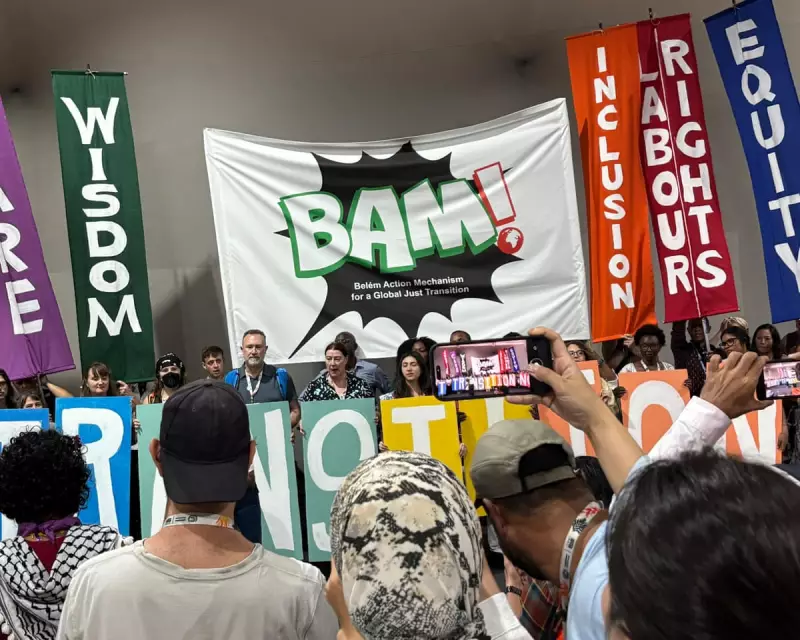
Throughout the bustling halls of the UN's Cop30 climate summit in Brazil, a simple, bold acronym is making waves: BAM. Civil society activists are sporting badges emblazoned with the term, signalling their support for a groundbreaking proposal known as the Belém Action Mechanism.
Securing the BAM has emerged as a top priority for climate justice advocates at these critical talks. Proponents argue that without prioritising a just transition, climate action risks unintentionally leaving workers and vulnerable communities behind, replicating the inequalities of the current extractive economy.
The Push for a Fair Green Economy
The core idea behind BAM is to create a framework ensuring that the shift to a low-carbon world boosts prosperity and minimises inequality. It is no secret that polluting industries disproportionately harm frontline workers and adjacent communities. A new green economy, supporters insist, must not follow the same damaging patterns.
The movement received a monumental boost this week when the G77 and China, a bloc representing approximately 80% of the global population, collectively announced their support for a just transition mechanism. This unified call gives significant weight to the campaign for BAM.
What Would the Belém Action Mechanism Actually Do?
According to its backers, BAM is urgently needed to move from vague promises to concrete action. Currently, global efforts on a just transition are fragmented and lack coordination. "No one is even tracking progress on this," stated Teresa Anderson, global climate justice lead at ActionAid. "BAM would fix that."
The mechanism would mandate countries to coordinate their just transition work, develop and share best practices, and support policy implementation, especially in low-income nations with limited capacity. While it would not create new climate finance mandates, it would prioritise non-debt-inducing finance and the sharing of technology with developing countries—values enshrined in the Paris Agreement.
Support and Opposition at Cop30
The BAM proposal was developed by a powerful coalition of civil society groups, including the Climate Action Network, the Women and Gender Constituency, labour and youth movements, and the Global Campaign to Demand Climate Justice. At Cop30, this alliance was further strengthened as a coalition of Indigenous groups formally joined the call.
However, not all nations are onboard. Powerful countries like the United Kingdom and Japan have been identified as naysayers. Their failure to back the proposal was significant enough for the Climate Action Network to award them the ironic "fossil of the day" award during the talks. In contrast, the Philippines was an early and strong supporter, helping to build the momentum that led to the major G77 and China endorsement.
The concept of a just transition itself originated in the US labour movement, focusing on supporting workers as they move from polluting sectors to environmentally friendly jobs. It has since expanded to include all people affected by the economic shifts driven by climate policy. The 2015 Paris Agreement acknowledged the framework in its preamble, but that text does not compel implementation, highlighting the critical need for a mechanism like BAM to ensure promises become reality.





